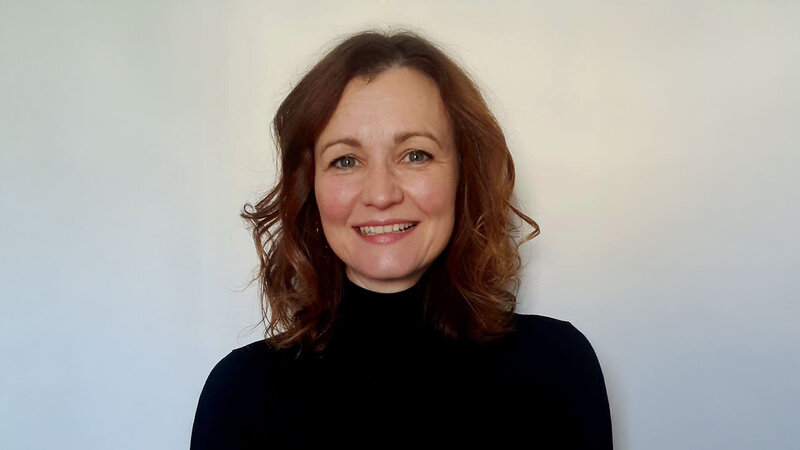You are viewing your 1 free article this month. Login to read more articles.
Should you quit?
Swapping corporate publishing for freelancing made me much happier — but there’s a lot that can be done to prevent a mass exodus.
A year ago I wrote about why I left my job as one of the UK’s most successful fiction publishers. A very short version goes: I worked too hard, for too long, in damaging environments, until I lost my mind. That wasn’t the end of the story, though. After leaving I lost a whole lot more, a reckoning that’s still being felt. I lost the security of a salary and benefits package – not least the security to be unwell again. I lost the purpose and joy of curating a list of books I loved, by authors I respected and cared for. I lost friends and a community. I lost status, an identity. My article prompted hundreds of messages, at least half of which were from freelances who had also quit in-house jobs for the same reason: out of having no other.
The strange fact I have been trying to understand is that, despite losing so much, I am quantifiably healthier and happier. Why might this be? I hope that my findings will help those who are grappling with their own mental health at work and the businesses who want to sustain a committed workforce.
If you need further encouragement, consider this: according to the HSE, stress, anxiety and depression accounted for 51 per cent of all work-related ill health cases in 2020-2021, amounting to 17 million days of lost work. And don’t be fooled into thinking this is down to the pandemic – the numbers map to pre-2020 figures, in an upward trend that’s been going in the same unrelenting direction for decades. Many of those freelances I have spoken to have experienced staggering difficulty over the few last years, and would arguably be better off in the security of employment – yet feel this is not an option. So, what’s going wrong?
Much of it is down to conditions of employment. When you are freelance, those conditions are negotiated with yourself. When you work in-house, your employer gives you a contract – literal but culturally enshrined – in which they dictate how you work. Most contracts state you must do whatever an employer reasonably asks of you, as long as it does not lead to you being "unsafe". Whilst this should encompass psychological safety as well physical, this is hard to prove and measure, and so goes largely unchecked.
I believe that the most important thing publishers can do right now is put in better guidelines about healthy working hours, and enforce them. This may require investment, but it will be good for business
Psychological danger is rife in many companies, and there are two main areas that came up repeatedly in the messages I received. The first is bullying or abusive behaviour. Bullying takes the form of frequent interpersonal aggressions, most commonly by a person in a position of greater power towards someone of lesser. It is generally verbal and can be hard to identify because what feels like an attack to one person could appear a minor incident to others. What I would say to business leaders is notice the pattern. If multiple people are reporting an issue, even if not formally, then there is an issue. If you’re thinking "but that person hasn’t done anything to me", consider that this may be exactly the point. People who bully in a sustained manner instinctively identify the most vulnerable. We all have a responsibility to support the victims and to show it won’t be tolerated. If we don’t, we risk forming a monoculture of personalities and working styles that will stymy creative growth.
Working hours is the other area of psychological risk most reported by the people who wrote. As one senior ex-publishing professional said, "an ever-increasing workload meant working from morning until midnight…I broke". A standard contract will demand extra hours "on occasion". The problem is, there is no end to the work you could do in publishing, because there is no single proven formula for success. Tight margins and an atmosphere of paranoid competition lead directly to overwork. This is further reinforced by a culture that says, "you are lucky to work in this industry", and, "you must go above and beyond to get ahead", a message most potent for those in underrepresented groups. The problems experienced by authors and recently reported on in The Bookseller are connected to this issue. Every publishing professional I know is doing their best, but when the list of work is impossible to achieve they often have to prioritise business decisions and in-house demands over the support of their less profitable authors.
As a freelance I am now able to put in boundaries to my working hours, and spend the time each author or publisher hires me for, which results in happier people on both sides. As one of the freelances who quit a very successful in-house career said, "I feel like I’m doing a good job for the first time in years; not constantly feeling like I’m letting someone down". For me, this is also because I am no longer responsible for the books’ sales, no longer trying to achieve the impossible for businesses that demand a percentage growth year-on-year, or performing for a social media-driven book culture that’s becoming increasingly fixated on financial markers of success.
Which brings me to purpose and joy – the sense of fulfilment I get from the job. I love my job now. Working directly with authors to help them achieve their dreams is where I always wanted to be. However, that is only about 25% of my purpose and pleasure quota (two markers scientists look at to determine happiness). One of the things I often say to the authors I coach is that it’s important to find purpose in many places. You can love books, but publishing is not books: publishing is selling books. It is an unpredictable thing, not always related to how hard someone works or how good their book is. Because I dictate my hours, I now live in a way that acknowledges that fact. My healthiest weeks are four seven-hour days, with the fifth volunteering, and plenty of other P&P-boosting activities around that.
I know for many reading this article, this way of living will seem like an impossible dream. That is why I believe that the most important thing publishers can do right now is put in better guidelines about healthy working hours, and enforce them. This may require investment, but it will be good for business, because they will lose fewer people and those people will have healthier brains and bodies.
But it’s not just about working hours. What makes the biggest difference now is the feeling that I am in charge of my working hours. Research says that a sense of a knowable future is vital to fight depression and anxiety. The contradiction I have finally figured out, is that while my future is uncertain, I now have far more control over it. Before, in all of my jobs, I felt chronically out of control of my destiny. This was partly because, as I have said, selling books is unpredictable, but it was also experienced on a psychological level – and we’re back to psychological safety here: because I often saw people across the industry treated badly and the perpetrators allowed to get away with it, because the career ladder was uncertain, because I knew that I was only valuable while my books were. This is why, even in the act of handing in my notice, when I felt as though the ground was shaking underneath me, I also felt a sense of relief. I was now, at least, free to run.
I’d love to end the article with an exhortation to quit, but the answer shouldn’t be a mass exit. The answer should be better employment. Rather than rushing back to the safety of the familiar, post-pandemic – an office-based, meetings-focused, profit-driven, work-long culture – business leaders could be taking this moment to think of the future. They could be looking at other industries that are on the rise, at how they retain talent, and remaking ours as a place that allows for personal needs, that includes people who are different to them, that values the work they do and creates the conditions they need to thrive. It is possible. It is credible. It is vital.
To read more from Katy, and for a list of resources, visit her free Substack.
The issues of burnout and working culture will be tackled live at FutureBook 2023 on Monday 27th November, in a panel called The Way We Work: Structural Changes that Support our Teams, featuring Jenny Fry, publisher & commercial director at Canongate; Lucy Jones from Tandem Collective; Joel Rickett, m.d. at Ebury; and The Bookseller’s Miriam Robinson. Book your physical or digital ticket now.


















